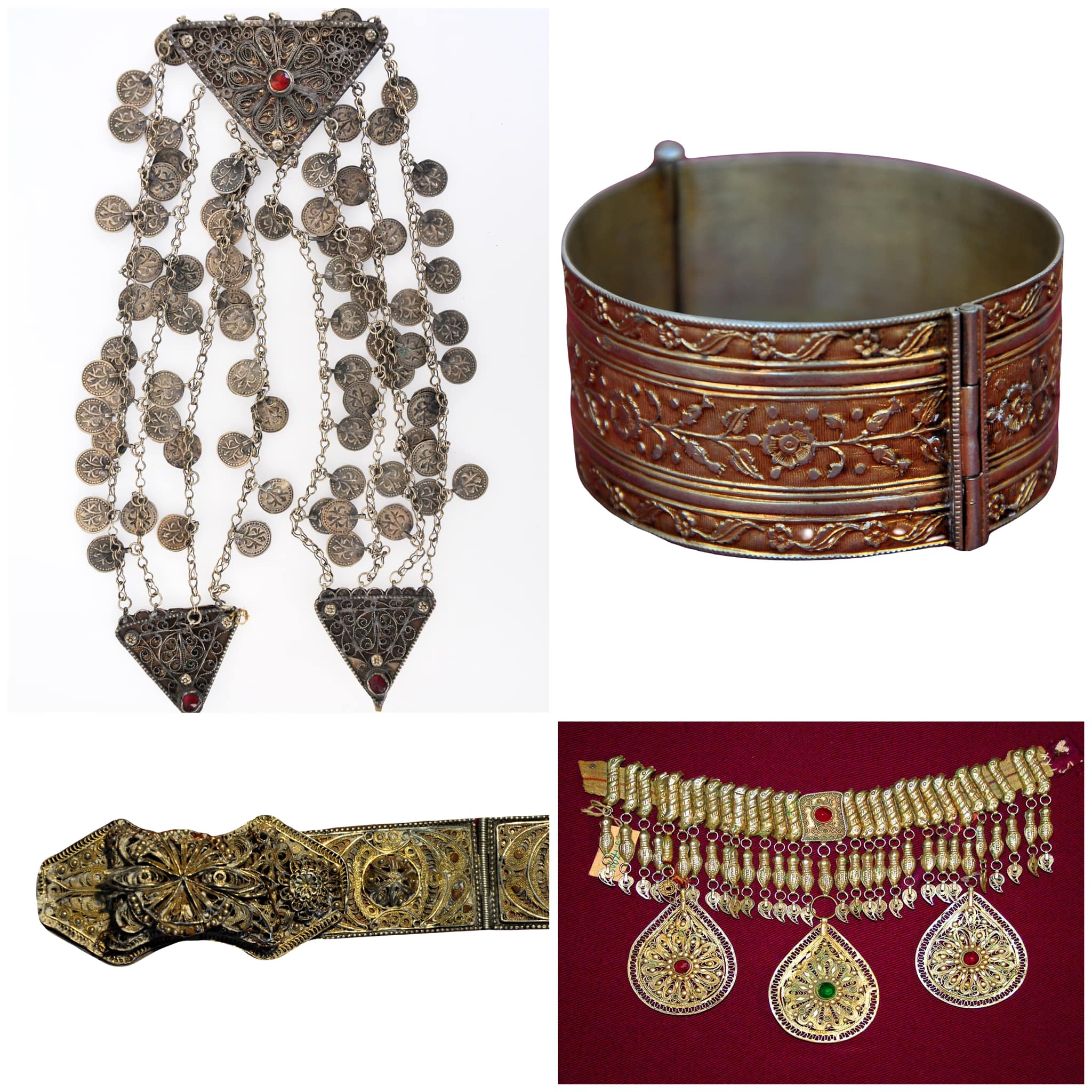Online resources

Ajarian customs
Ajarian customs
The wedding is the most important day in every person's life. The rules for celebrating this day vary from country to country. As one of the oldest peoples, Georgians have developed appropriate wedding rituals and customs.
Ethnographic data in Ajara show that the Ajarian wedding is identical to the wedding in other parts of Georgia: preliminary negotiations between the parents, dowry, betrothal, the ceremony, and others.
After obtaining consent, the "ambassador " or matchmaker who came to the woman's family left a ring, necklace, or a gold coin- "Altun " for the bride. The woman's family sent socks to the fiancé, and after that, he would bring the bridal jewellery. Friday or Saturday was specially chosen for the engagement; the moon had to be full.
Bridal Jewellery included: Rings, earrings, pendants, gold or silver chains, an odd number of coins were favored, which were hung on the forehead of the chosen one, and a silver belt was also an attribute of the betrothal. A gift intended for the groom's mother was an essential element of bridal jewelry.
The engagement had a festive character and was almost on the scale of a wedding. In mountainous Ajara, the official signing of the marriage was often carried out at the time of the betrothal, the so-called "Agdis gachra," the ritual of the official announcement of the marriage.
They were creating a marriage contract which provided for the payment of a certain amount of money from the husband to the wife in case of a divorce. It also stated the amount the son's family would pay for the wife's dowry.
Men and women could be betrothed at any age. It should be noted that there were similar rules in every ethnographic state of Georgia.
After the betrothal, the bridegroom was considered married, and the fiance was the husband. Breaking the betrothal was considered a crime, and the relatives of the one who refused it were dishonored. From the age of 12-14, a woman was expected to wear a head covering, especially if she was pregnant.
From the day of the betrothal, the groom's family was obliged to support the wife's family in times of misfortune and to enjoy themselves in happy times. He was obliged to visit the groom's family with gifts on all public and religious holidays. The groom also visited them for a time and gave them gifts in return.
According to the rules, it was the duty of the son's family to decorate the queen for her wedding (by sending a complete set of wedding clothes), which was called "bringing the bokhcha."
In the various phases of historical development, most customs have changed over time and some have been reconsidered, but even today the original wedding customs, which are characteristic of different parts of Georgia, are still widely observed

 News
News Online magazine
Online magazine Tickets
Tickets